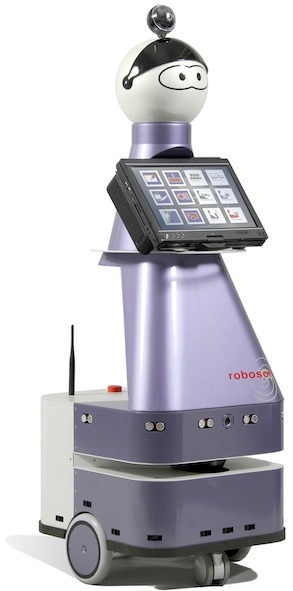New project to address the challenges of dementia with use of service robots

Related topics
Health ICT Research & Innovation ICT Health, Demographic Change and Wellbeing Europe in a changing world - Inclusive, innovative and reflective societies EU countriesdate: 13/04/2015
Project: Managing Active and healthy aging with u...
acronym: MARIO
Project coordinator: National University of Ireland Galway
See also: CORDIS
Contact: Dr Dympna Casey of NUI Galway
The €4 million project will last for three years during which three pilot studies of robots interacting with people with dementia will be undertaken. The first pilot will run in the West of Ireland, organised by NUI Galway’s School of Nursing and Midwifery, the second will run in Stockport, UK, organised by the city’s health care managers, while the third will run in Italy, organised by a leading research hospital, Casa Sollievo della Sofferenza, which is pushing research boundaries in comprehensive geriatric assessment.
Project coordinator, Dr Dympna Casey of NUI Galway, said of these pilot studies: “All interactions with caregivers, persons with dementia, older persons and stakeholders will fully comply with standards-based medical assessment methodologies, and aspire to provide a truly user-led design ethos.”
The technology at the heart of MARIO is the robot Kompai, designed and developed by a consortium partner, French company Robosoft. Other partners in the consortium will provide technological expertise in the areas of robotic applications and semantic computing. All the outcomes of the research will be made public. These are expected to be of great benefit to people with dementia as well as lead to commercial opportunities for cutting-edge technology companies.
Professor Murphy continues: “The project will follow an open door communications policy. The project is funded by the European Commission and its results belong to all the citizens of the European Union.”
